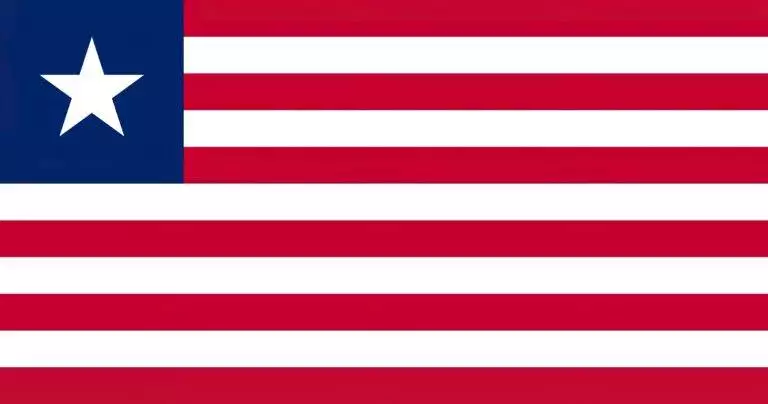A Brief History of Liberia
The Liberian Flag

Liberia is a country located on the west coast of Africa. Its history is unique as it was founded by free African-Americans and freed slaves from the United States in the 19th century. Here’s a brief overview of Liberia’s history:
Founding: In 1822, the American Colonization Society (ACS) established Liberia as a colony for free African-Americans and freed slaves. The first group of settlers arrived in 1822 and established a settlement called Christopolis, which later became known as Monrovia, named after James Monroe, the fifth President of the United States.
Independence: Liberia declared its independence on July 26, 1847, becoming the first African republic. Joseph Jenkins Roberts, a prominent settler, became Liberia’s first president. The country adopted a political system modeled after the United States, with a constitution and a bicameral legislature.
Americo-Liberian Rule: For over a century, Liberia was dominated by Americo-Liberians, the descendants of the original African-American settlers. They controlled the political and economic power, leading to inequality and marginalization of the indigenous African population.
Economic Development: In the late 19th and early 20th centuries, Liberia experienced economic growth based on the export of natural resources, particularly rubber and timber. The country attracted foreign investment, and American corporations played a significant role in its economic development.
Political Challenges: Despite economic progress, political stability was challenged throughout Liberia’s history. There were periods of internal conflicts, coup attempts, and political instability. The True Whig Party, formed by Americo-Liberians, dominated politics until a military coup in 1980.
Samuel Doe Era: Samuel Doe, a master sergeant in the Liberian Army, seized power in a violent coup in 1980. His regime was marked by authoritarian rule and human rights abuses. Doe’s presidency was characterized by tensions between ethnic groups and social unrest.
First and Second Civil Wars: In 1989, Liberia plunged into a devastating civil war when Charles Taylor, a former government official, launched an armed rebellion against Doe’s regime. The conflict lasted for over a decade, resulting in widespread destruction, loss of lives, and human rights violations. A peace agreement was reached in 2003, leading to the deployment of a United Nations peacekeeping mission.
Post-War Reconciliation: After the civil war, Liberia faced the challenging task of post-conflict reconciliation, reconstruction, and establishing democratic governance. In 2005, Ellen Johnson Sirleaf became the first elected female African head of state, serving as Liberia’s president until 2018.
Recent Years: Since the end of the civil war, Liberia has made progress in stabilizing the country and rebuilding its institutions. However, there are ongoing challenges such as high unemployment rates, poverty, inadequate infrastructure, and weak healthcare and education systems. The country continues to work towards sustainable development and strengthening democratic processes.
Today, Liberia is a member of the United Nations and the African Union, and it plays an active role in regional affairs. The country strives to overcome its historical challenges and build a prosperous and inclusive society.